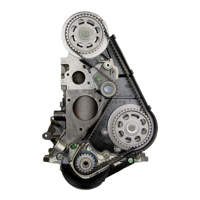Explore the Key Features of the 2.2 Ford Ranger Engine and Its Fuel Efficiency
Explore the Key Features of the 2.2 Ford Ranger Engine and Its Fuel Efficiency
Blog Article
What Makes a Car Engine Run Smoothly: Leading Tips for Ideal Treatment
The smooth operation of an auto engine is basic to both performance and long life, making optimum treatment an essential obligation for vehicle owners. What certain actions should you prioritize to guarantee your engine stays in peak condition?
Routine Oil Adjustments
One of the most vital elements of auto upkeep is ensuring your engine receives routine oil changes. Engine oil lubricates interior parts, minimizes rubbing, and aids keep ideal operating temperature levels. In time, oil weakens because of heat, pollutants, and the all-natural results of combustion, leading to reduced efficiency and possible engine damage.
Many producers recommend altering the oil every 5,000 to 7,500 miles, yet this period can differ based on driving conditions and oil type. Synthetic oils may allow for longer intervals in between changes. Normal oil changes not just improve engine performance yet also enhance fuel performance, as clean oil advertises smoother operation.
Overlooking oil changes can cause sludge accumulation, which impairs flow and can cause extreme engine problems. It is vital to examine oil levels regularly and keep track of for any uncommon modifications in shade or uniformity, which could indicate contamination or destruction.

Maintaining Coolant Levels
Maintaining correct coolant levels is important for stopping engine overheating and ensuring optimal efficiency. The coolant, generally a mixture of water and antifreeze, distributes via the engine, soaking up warm and protecting against thermal tension. Insufficient coolant can bring about boosted engine temperatures, which might create severe damages or perhaps overall engine failure.
To preserve optimum coolant degrees, frequently examine the coolant storage tank, typically located in the engine bay. Make sure the coolant is loaded to the recommended mark, as shown in your automobile's owner handbook. It is advisable to inspect the levels at the very least when a month or in the past lengthy trips, specifically during extreme climate condition.
If you see that the coolant degree is consistently reduced, there might be a leak in the cooling system, which must be attended to immediately to stop further complications. 2.2 ford ranger engine. Additionally, flushing the coolant system every a couple of years can help remove any kind of built up particles and ensure efficient warmth exchange
Monitoring Air Filters

It is suggested to inspect the air filter every 12,000 to 15,000 miles, or much more frequently if driving in dusty or damaging conditions. A basic visual assessment can commonly reveal whether the filter is filthy or harmed. It should be replaced immediately. if the filter appears blemished or has visible dust buildup.
Using a top quality air filter designed for your specific automobile model can better enhance engine efficiency. Furthermore, some vehicles might gain from reusable filters that can be cleaned and reinstalled, giving a affordable and eco-friendly alternative.
Inspecting Flicker Plugs
Ignition system are necessary elements of a vehicle's ignition system, directly affecting engine efficiency and performance. They create the stimulate that ignites the air-fuel mixture in the burning chamber, facilitating the engine's power generation. Routine evaluation of ignition system is important for maintaining optimum engine feature and protecting against prospective issues.
Throughout an inspection, seek signs of wear or damage, such as cracks, carbon buildup, or excessive void widening. A healthy ignition system usually shows a brown or tan shade. Dark residue or oil deposits can show inappropriate combustion, while a white or blistered appearance may suggest overheating. Both problems require instant interest to stop more engine damage.
It's a good idea to examine spark plugs every 30,000 miles, or as advised in your car's owner manual. In addition, think about replacing them according to the maker's guidelines, as worn or old spark plugs can result in misfires, reduced gas effectiveness, and go boosted discharges.
Surveillance Tire Stress
Under-inflated tires can lead to reduced fuel efficiency, enhanced tire wear, and compromised handling. Normal tracking of tire stress is important for optimum lorry operation.
Tire stress ought to be examined a minimum of when a month and soon trips. Make use of a reputable tire pressure scale to measure the stress when the tires are chilly, preferably prior to the automobile has been driven for a minimum of 3 hours. Refer to the automobile's proprietor guidebook or the placard situated on the motorist's side door jamb for the manufacturer's Related Site recommended pressure degrees.
It is very important to note that tire pressure can fluctuate with modifications in temperature; a decrease of 10 ° F can result in a 1-2 psi decline in stress. Additionally, aesthetically examine tires for any type of indicators of wear or damage during your surveillance routine. Keeping proper tire pressure not just boosts vehicle security yet additionally improves fuel effectiveness and extends tire life, eventually adding to a smoother engine efficiency.
Final Thought
Finally, keeping an auto engine's smooth procedure needs attentive attention to a number of crucial variables. Regular oil adjustments, proper coolant levels, clean air filters, well-kept ignition system, and ideal tire stress jointly add to boosted efficiency and longevity. Abiding by these upkeep practices not only enhances fuel performance yet likewise promotes a more secure driving experience. Eventually, an aggressive method to engine care is crucial for making sure dependability and functionality gradually. 2.2 ford ranger engine.
One of the most critical elements of automobile maintenance is ensuring your engine gets normal oil modifications. Engine oil lubricates internal components, decreases friction, and assists keep ideal operating temperatures. Regular oil changes not just boost engine efficiency yet likewise improve gas effectiveness, as tidy oil promotes smoother operation.
Not enough coolant can lead to boosted engine temperatures, which might create serious damages here are the findings or also complete engine failing.

Report this page